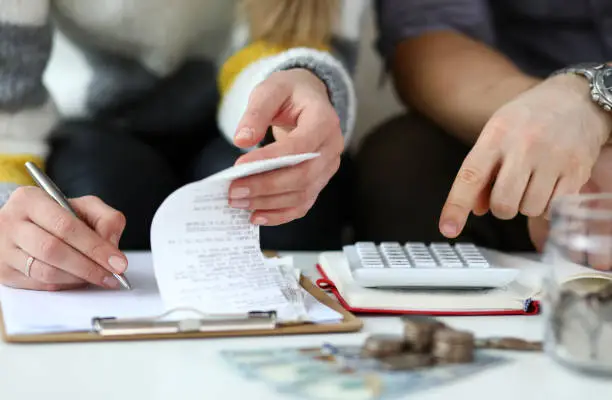My Gambling and Mental Health Recovery
When the addiction masks the pain—and healing means facing both
I’m Erica, 41, a former paralegal from Denver. For years, I lived two lives. The one everyone could see—organized, reliable, the woman who never missed a deadline. And the one no one saw—curled up in bed at 3 p.m., blinds drawn, staring at the glow of a gambling app, wondering how I had ended up there.I didn’t gamble for fun. I gambled to feel. To escape the heavy fog of depression. To chase a fleeting sense of control in a life that felt empty and colorless.
Note: This article may contain affiliate links. If you choose to make a purchase through them, HighStakesHealing.com may earn a small commission at no additional cost to you. These recommendations are carefully selected to support individuals seeking clarity and healing on their recovery journey.
The Hidden Link Between Gambling and Mental Health Recovery
It took me years to see the connection between my depression and my gambling. When I felt anxious, I bet. When I felt hopeless, I bet. And when I felt nothing at all—when the world went flat and lifeless—I bet the most.
The dopamine rush gave me a heartbeat when depression made me feel numb. But the crash always came harder. And every time, I needed more to quiet the ache.
- I missed a mortgage payment.
- I lied to my sister.
- I stopped showing up to work.
I wasn’t just losing money. I was losing myself.
Stress, Anxiety, or Overwhelm? Try Somatopia
Somatopia offers gentle somatic exercises and calming practices that can help you feel grounded, centered, and more in control during recovery.
The Turning Point
One night, I found myself sitting on the kitchen floor, staring at a past-due notice in one hand and my phone in the other—finger hovering over another bet. I realized I wasn’t gambling to win anymore. I was gambling to avoid feeling my life.
That was the night I whispered, “I can’t do this alone.” And for the first time, I meant it.
Starting My Dual Recovery
When I finally reached out for help, my therapist didn’t just focus on the gambling—she helped me face the depression that had quietly shaped my life for years. My path toward gambling and mental health recovery began with treating both together, not separately.
Here’s what helped me most:
- Therapy: I learned to untangle the knot between my emotions and my urge to gamble.
- Support groups: Listening to others share their struggles helped me feel seen, not alone.
- Medication: It didn’t erase the pain, but it gave me the stability to begin healing.
- New routines: Journaling in the mornings, walking daily, volunteering twice a week—small anchors that kept me grounded.
Struggling to stay consistent after quitting gambling?
With GoalsWon Coaching, you get daily check-ins, support, and structured accountability to keep you grounded and moving forward in recovery.
What I’ve Learned About Gambling and Mental Health Recovery
When I first entered recovery, I thought the biggest battle was simply stopping the gambling. But over time, I realized the real work was deeper. Gambling addiction isn’t always about thrill-seeking or greed—it’s often about pain. For me, gambling was a way to soothe wounds I didn’t even know how to name. Every spin, every bet, every late-night gamble wasn’t about money—it was about numbing a heaviness I couldn’t face.
What I came to understand is that gambling and mental health recovery go hand in hand. I couldn’t move forward until I faced my depression with the same courage I was learning to use against my gambling addiction. Healing meant allowing myself to grieve, to feel, and to be honest about the darkness I had been avoiding. It meant understanding that depression didn’t make me weak, and gambling didn’t make me hopeless—it made me human, someone in need of compassion and real support.
Recovery hasn’t made me “perfect.” It hasn’t erased my past mistakes or the scars I carry. But it has made me more honest—with myself and with others. It has taught me that recovery is not about reaching some flawless version of myself. It’s about living without hiding, about showing up for life even when it feels messy, and about learning that being layered doesn’t mean being broken.
If you’re fighting both gambling and mental health struggles, please know this: you are not alone, and you are not beyond healing. There is no single roadmap, but there are countless paths to recovery. Whether it’s therapy, medication, peer support, or simply sharing your story, each step matters. Every part of your journey deserves care, and every layer of who you are is worthy of love and healing.
Need Practical Tools for Healing?
Head over to our Recovery Tools & Resources page — your central hub for trusted tools, guided supports, and resources that make recovery doable and sustainable.
Explore More on Gambling and Recovery
- Understanding the Link Between Gambling and Depression
- Somatic Recovery Techniques that Strengthen Relapse Prevention
Share Your Story
Your voice matters. If you have your own experience with gambling and mental health recovery, we invite you to share it. Your words may be the lifeline someone else is searching for.





